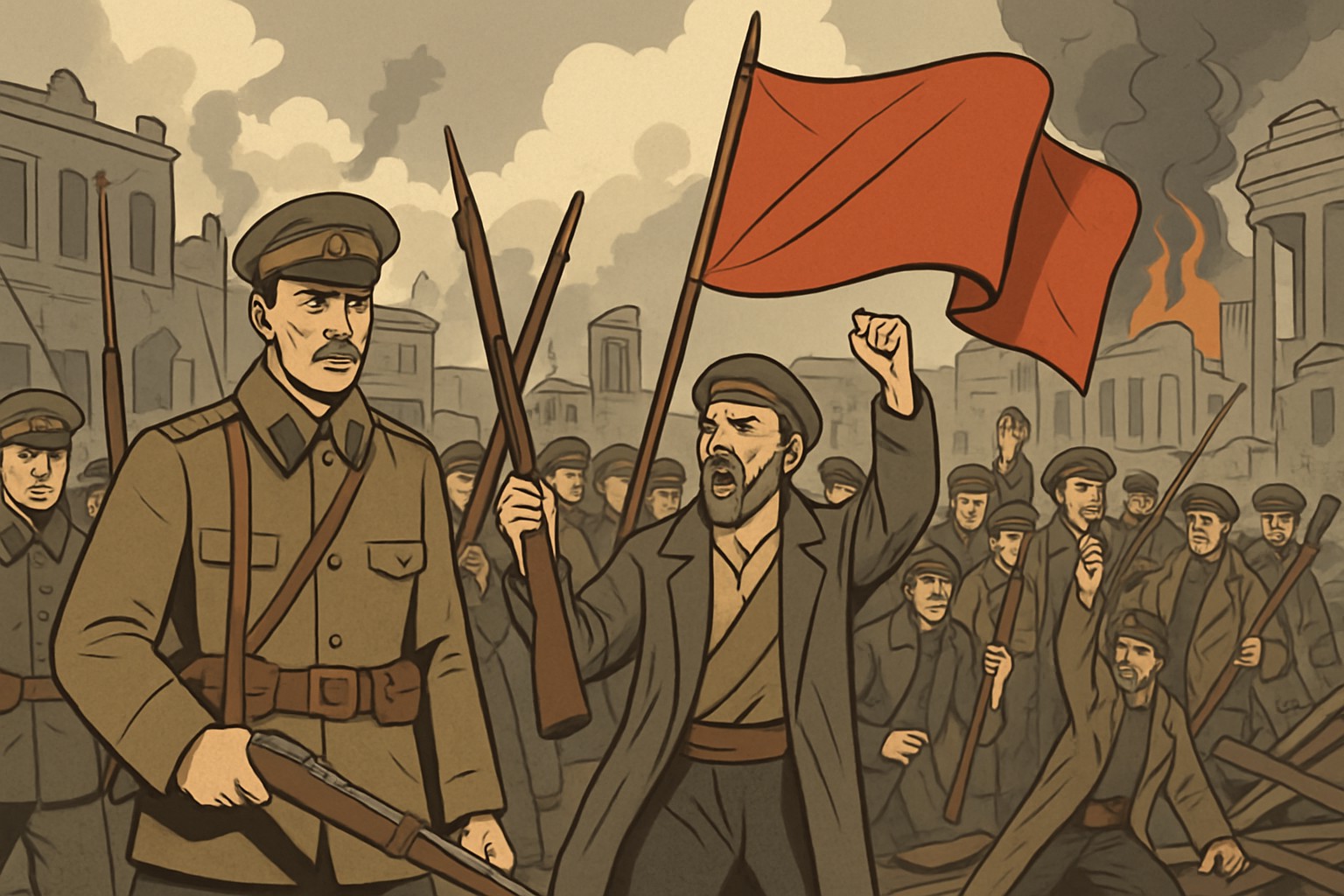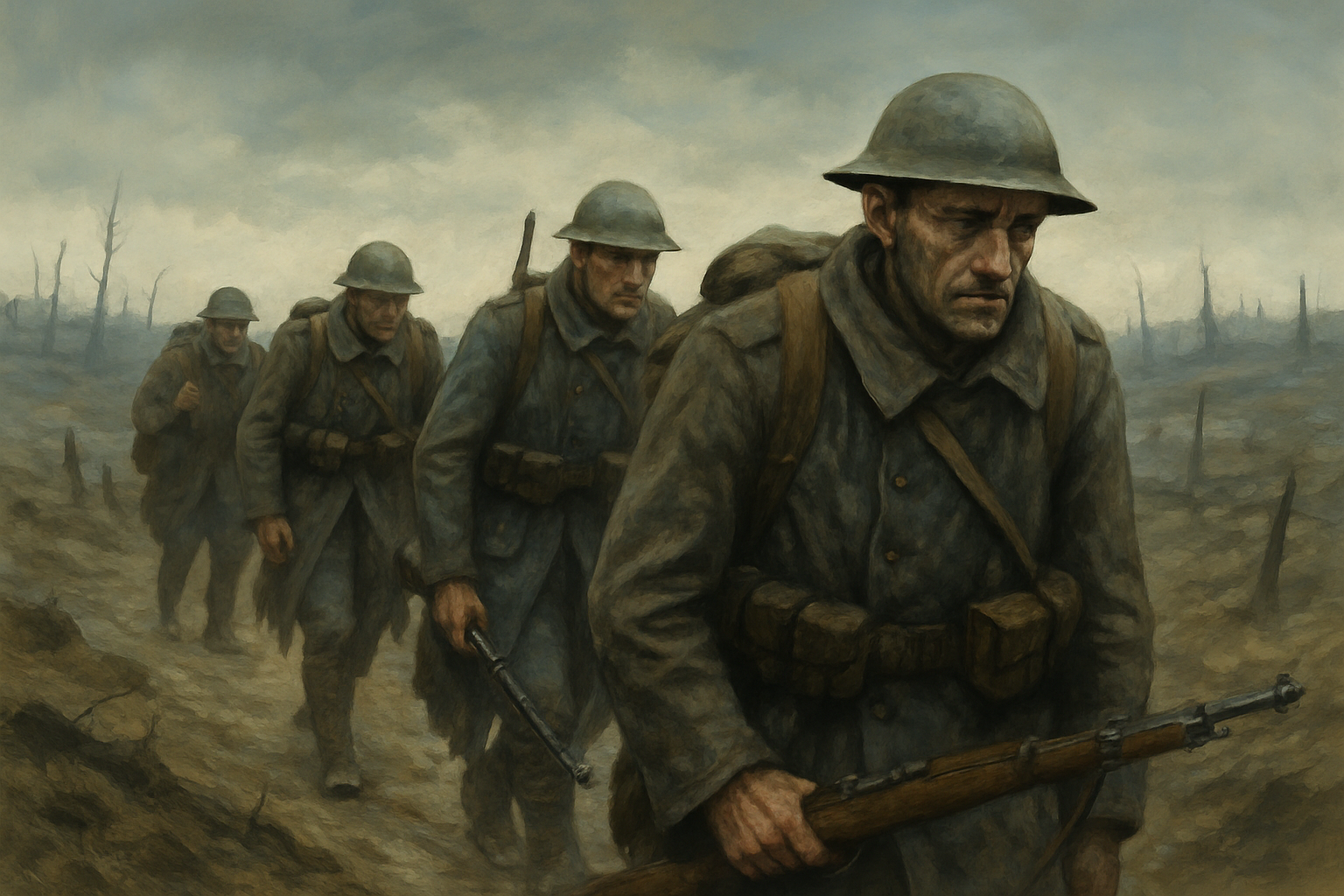What Led Russia To Withdraw From World War 1 Quickly?

World War 1 dramatically reshaped global politics, and understanding why did Russia withdraw from World War 1 remains a topic that still piques curiosity today. This article takes a closer look at why Russia threw in the towel so early. It dives into the tangled web of political chaos, tough military setbacks, crushing economic strain and mounting social unrest that nudged them to step back ahead of the rest.
Background A Closer Look at Russia's Role in World War 1
When World War 1 kicked off in 1914, Russia was a key player in the Triple Entente alongside France and Britain. Its main goal was to stand up for Slavic interests in the Balkans and spread its influence across Eastern Europe. Russia didn’t waste any time, rushing to mobilize troops and kick open the Eastern Front against Germany and Austria-Hungary.
- Russia jumped on board with the Triple Entente alongside France and Britain, all united in their stand against the Central Powers.
- Their main game plan was to defend Serbia and quietly boost their influence throughout Eastern Europe and the Balkans.
- Russia launched military campaigns against Austria-Hungary in Galicia and also took on Germany in East Prussia.
- The Russian army was up against it from day one, grappling with outdated infrastructure and some pretty frustrating communication problems.
Challenges and Setbacks in Military Campaigns When Strategy Meets Reality
Russia’s military efforts during World War 1 ran into serious snags due to logistical hiccups and outdated equipment. Leadership also left a bit to be desired. Those repeated setbacks on the battlefield didn’t just bruise pride—they slowly chipped away at morale and drained their resources, making the whole fight feel like an uphill battle with no end in sight.
- Russian troops often found themselves stuck with outdated rifles and artillery and a chronic shortage of ammunition that put a damper on their combat effectiveness.
- Serious logistical headaches meant that supplies and food often failed to reach front-line soldiers when they desperately needed them.
- The army took heavy losses in brutal battles like Tannenberg and the Masurian Lakes but managed to gain only small strategic advantages.
- Weak leadership and a sluggish command structure made it tough to make snap decisions or adapt swiftly to the chaos on the battlefield.

Russian troops retreating after a devastating defeat on the Eastern Front, illustrating the harsh military conditions.
A Closer Look at Economic and Social Effects on Russia
World War 1 really piled on the pressure for Russia's fragile economy. Agricultural output took a nosedive and inflation shot up at a dizzying pace. Pesky supply chain hiccups caused food and fuel shortages that were hard to ignore.
- Inflation shot up sending prices of everyday goods skyrocketing and quietly nibbling away at people’s hard-earned savings.
- Both agricultural and industrial output took a nosedive as countless workers and peasants were drafted or compelled to pack up and leave.
- Cities found themselves grappling with severe food shortages leading to widespread malnutrition and simmering unrest among the urban people.
- Workers banded together organizing strikes and protests determined to push for better conditions and some much-needed relief from the harsh toll the war had taken.
Political Unrest and Revolution When the Tides Turn
The combined economic and social crisis stirred up widespread dissatisfaction with the Tsarist government and set the stage for the February Revolution in 1917. Tsar Nicholas II stepped down from the throne and ushered in a shaky Provisional Government that, much to everyone’s frustration, kept Russia tied to the war effort. This unstable situation cracked the door wide open for the Bolshevik Revolution in October
It dramatically reshaped Russia’s political landscape.
- Tsar Nicholas II’s abdication marked the end of centuries of imperial rule and left a power vacuum that nobody knew how to fill.
- The Provisional Government did its best to keep Russia in the war but struggled with shaky popular support and inefficiency.
- When the Bolsheviks stepped in during the October Revolution, they promised peace, land and bread to a population worn to the bone from endless fighting.
"The Russian people endured four long years of harsh hardship, yet the war seemed to lumber on as if their pain was just background noise. It’s a tough pill to swallow, but that disconnect between what they lived through and the relentless fighting sparked a simmering anger—one that ultimately toppled an empire and rewrote the course of history."
The Treaty of Brest-Litovsk That Finally Ended Russia's Involvement
To hold up the Bolsheviks' promise of peace, Russia went ahead and signed the Treaty of Brest-Litovsk in March 1918 with Germany and the Central Powers. The treaty demanded some painful territorial losses, but it finally allowed Russia to officially bow out of World War 1.
Negotiations began quickly after the Bolsheviks seized power showing their strong desire for peace.
Russia gave up vast areas of land including Ukraine, Belarus, the Baltics and parts of Poland which significantly reduced its sphere of influence.
The treaty was not just about ending the fighting. It was a strategic move to strengthen Bolshevik control and focus inward to address the growing crisis at home.
Strategically ending the war relieved a heavy burden on their military and economy and freed important resources to address the civil war and the huge challenge of rebuilding.
Common Misunderstandings About Why Russia Withdrew From World War 1 That Often Cause a Stir
Russia’s exit from World War 1 is often simplified as a military failure or a story of betrayal. Like many events in history the reality is more complex and shaped by major ideological shifts and rising political pressures and widespread social unrest that affected nearly every part of the country. When you look closer it becomes clear that the withdrawal was not just about battlefield losses but a deliberate and difficult step in Russia’s broader path toward transformation.
- Russia's withdrawal wasn’t just about losing ground on the battlefield. A messy internal breakdown played a huge part as well.
- The Bolshevik leaders prioritized ideology and focused on securing political control instead of fighting a war few wanted to continue.
- Agreeing to peace wasn’t simply about surrender or betrayal. It was more about protecting their own survival and tightening their grip on power.
- This pullout shook up the Allied war effort in a big way and it was absolutely vital in setting the stage for Russia’s future direction.
The Impact of Russia Leaving World War 1 A Turning Point with Ramifications
The reason why did Russia withdraw from World War 1 surprised everyone in the military landscape almost overnight and left ripples that lasted well beyond the guns falling silent. It reshuffled the entire Eastern Front and forced the Allies to rethink their playbook on the fly. Meanwhile, back home the fallout ignited bitter internal conflicts that eventually boiled over into the brutal Russian Civil War.
- With the Eastern Front effectively closed Germany had the chance to move troops to the west at least for a little while.
- The Allies found themselves scratching their heads because they needed fresh strategies after the Russians pulled out and left them without that eastern support.
- Russia's withdrawal did more than leave a gap on the map. It also intensified its civil war as factions scrambled to claim power in the vacuum.
- The loss of territory and the treaties that followed redrew borders and reshaped Europe's political landscape after the war, setting the stage for a whole new chapter.





